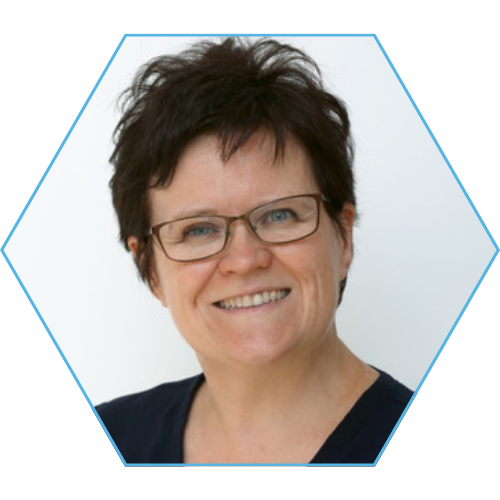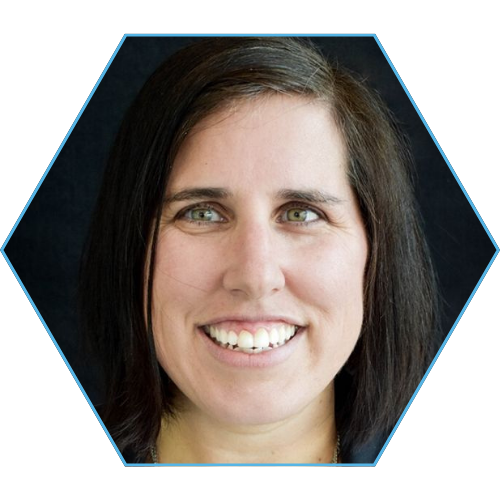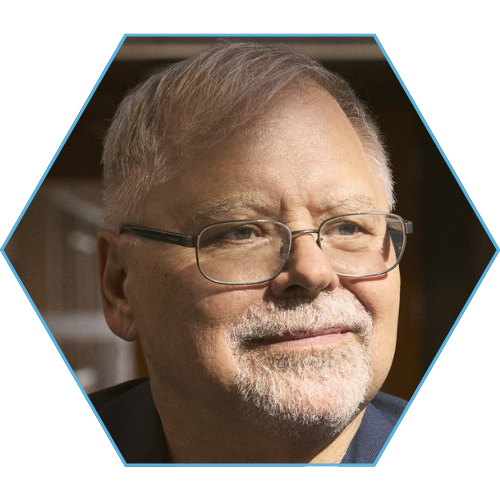The 2025 Royal Society of Canada Eastern Ontario Symposium is a free event open to anyone from the Kingston community and beyond who is interested in hearing four experts talk passionately about their research. The speakers are all RSC Fellows or Members of the RSC New College of Scholars, Scientists and Artists.
Presentation Topics
RICHARD J. BATHURST, FRSC | Finally, a Good News Story for Plastics? Modern Geosynthetics in Geotechnical Applications

Richard Bathurst is Professor Emeritus of Civil Engineering at the Royal Military College of Canada where he has taught since 1980, and holds a cross-appointment with the Civil Engineering Department at Queen's University. A Fellow of the Royal Society, he is recognized as an international leader in the application of high-performance plastics (geosynthetics) in civil engineering earthworks construction. His work has informed modern construction codes both in Canada and the US. He has published more than 230 journal papers, and travels widely to deliver keynote lectures and short courses, and is the Editor-in-Chief of two highly acclaimed international journals. Amongst many other recognitions, he was awarded the 2024 Julian C. Smith Medal of the Engineering Institute of Canada "For achievement in the development of Canada". The "Bathurst Lecture" was recently established by the International Geosynthetics Society in recognition of his contributions to soil reinforcement technologies.
The use of geosynthetics is ubiquitous on the civil engineering earthworks landscape but buried out of sight and thus unappreciated by the public. His presentation will briefly trace the history of geosynthetics from their introduction in the late 1970s to modern times. Examples of everyday geotechnical structures that we take for granted (or at least don’t notice), but would not be possible to build without geosynthetic materials, are described. Unlike the bad-news stories that are often connected to the use of plastics, this is a good-news story because these materials are durable and long-lasting without damaging the environment.
More on Dr. Bathurst: Richard J. Bathurst – Royal Military College of Canada
CATHLEEN CRUDDEN, FRSC | The Power of Organometallics: From Catalysts to Self-Assembled Monolayers to Atomically Precise Nanoclusters

Cathleen Crudden is the Allie Vi Douglas Distinguished Research Professor, Queen’s National Scholar and Tier 1 Canada Research Chair in Metal Organic Chemistry at Queen’s University. She is the Scientific Director of the Carbon to Metal Coating Institute, a cross-disciplinary, multi-million-dollar collaboration spanning microelectronic, corrosion and cancer therapeutic research. She holds a cross appointment at the Institute of Transformative Bio-Molecules in Nagoya Japan. She has won numerous research awards including the Clara Benson Award (2011), Fellowship in the Chemical Institute of Canada (2014) a Killam Research Fellowship (2015), the R.U. Lemieux Award (2016), Montreal Medal (2019) and an Arthur C. Cope Scholarship (2019). She is a Fellow of the American Chemical Society (2024), was elected to the Royal Society of Canada (2020) and is a Fellow of the Royal Society of Chemistry UK (2016). In 2023 she received the NSERC Polanyi award, and is an elected member of the American Academy for the Advancement of Science. Cathleen was President of the Canadian Society for Chemistry in 2012/2013. She is currently the Editor-in-Chief of ACS Catalysis, and sits on the editorial advisory boards of many high impact journals. She founded the NSERC-Chemistry Liaison Committee, and is frequently asked to participate on national and international review panels and evaluation committees. Her work in catalysis and materials has received significant acclaim, and recent work identifying a new class of carbon-based SAMs has been called "game changing" and "the new gold standard" by international experts.
The use of N-heterocyclic carbenes to modify homogeneous metal catalysts is widespread since the high metal–NHC bond strength renders high oxidative and chemical stability to the resulting metal complexes. The use of NHCs to modify metal surfaces has received considerably less attention. We will describe the modification of planar metallic surfaces with NHCs and illustrate their power vs. typical thiolate-based SAMs. The nature of the surface overlayer is strongly dependent on the nature of the NHC. Similarly, NHCs are useful new ligands for the stabilization of metal clusters, with the structure of the cluster being strongly influenced by the nature of the NHC. The use of NHC-stabilized clusters in biological studies and in catalysis will be presented.
More on Dr. Crudden: Cathleen Crudden – Department of Chemistry, Queen’s University
AMY LATIMER-CHEUNG, RSC COLLEGE | Learning to Prioritize Quality Over Quantity: Lessons from Research Partnerships

Dr. Latimer-Cheung is a Professor in the School of Kinesiology and Health Studies at Queen’s University. She is a member of the Royal Society of Canada’s College of New Scholars. Amy is ranked internationally among the top 3% in research productivity and impact according to AD Scientific Index. Over her career, Amy has published 270 peer-reviewed papers and has held millions of dollars in grant funding from all three major funding agencies in Canada as well at the NIH. Currently she holds a $2.5 M SSHRC Partnership Grant – the largest funding opportunity available in the social sciences within Canada. Her research is at the forefront of creating and mobilizing research knowledge to promote quality physical activity experiences for persons with disabilities. Amy is the Director and Principal Investigator leading the Canadian Disability Participation Project 2.0 (CDPP 2.0). CDPP 2.0 is a research partnership of more than 75 researchers and sport, exercise and active play organizations working collaboratively to create quality experience in sport, exercise and active play for children, youth and adults experiencing disability. The practical research products she and her research team have developed have been translated into multiple languages for use worldwide and accessed in over 100 countries. In addition, Amy is the founding and current Executive Co-Director of Kingston Revved Up, an exercise program for 200 adults experiencing disability. Amy is a long-standing member of the ParticipACTION Research Advisory Group that has a role in shaping the Canadian physical activity agenda.
In the early years of my academic career, my research focused on numbers – determining the strongest predictors of physical activity participation among persons with disabilities, developing recommendations for the optimal dose of exercise for persons with disabilities, designing the clearest message to motivate an increase in rates of physical activity participation among persons with disabilities. This research, emphasizing quantity of participation, contributed empirically – advancing the application of theory to physical activity promotion for persons with disabilities. It also provided a solid foundation for a productive early research career. However, as I reached mid-career as a female academic now also juggling a young family, I felt uncertain of where to take my research and how to maintain the “numbers” indicative of academic productivity. I was stuck. In this presentation, I will share how I moved through this challenging career stage because of invaluable partnerships with colleagues and research users. My colleagues helped me refocus on my personal research mission – conducting research that makes an empirical contribution but most importantly, makes an impact in real-world settings. Research users guided me to a new line of research that is mutually meaningful and is impacting practice. As a senior scientist, my research, now entirely partner-driven, focuses on quality – quality physical activity participation for persons disabilities and quality academic outputs with implications for practice. This work has been the most rewarding of my career.
More on Dr. Latimer-Cheung: Amy Latimer-Cheung – School of Kinesiology and Health Studies
JOHN SMOL, FRSC | Forgotten Lakes: Braiding Indigenous Knowledge with Lake Sediment Archives
 John P. Smol is a Distinguished University Professor in the Department of Biology (cross-appointed with the School of Environmental Studies) at Queen’s University, where he also held the Canada Research Chair in Environmental Change for the maximum three 7-year terms (2001 – 2021). Smol founded and co-directs the Paleoecological Environmental Assessment and Research Lab (PEARL), a group of ~35 students and other scientists dedicated to the study of long-term global environmental change, and especially as it relates to lake ecosystems. John has authored >740 journal publications and chapters since 1980, as well as completed 24 books. Much of his research deals with the impacts of climatic change, acidification, eutrophication, contaminant transport, and other environmental stressors. Smol was the founding Editor of the J. Paleolimnology (1987-2007) and is current Editor of Environmental Reviews. Since 1990 John has received 7 honorary doctorates and has been awarded more than 100 research and teaching awards and fellowships, including the NSERC Herzberg Gold Medal as Canada’s top scientist or engineer, the Vega Medal from the King of Sweden, and the International Ecology Institute Prize. Amongst his 15 teaching and outreach awards, he was named a 3M Teaching Fellow and, following a nation-wide search, Nature chose John as Canada’s Top Mid-Career Science Mentor. He is an elected fellow of the Royal Society of Canada, the Royal Society (London), and an International Member of the U.S. Academy of Sciences. He was elected President of the Academy of Science, Royal Society of Canada (2019-2022) and, in 2013, he was named an Officer of the Order of Canada.
John P. Smol is a Distinguished University Professor in the Department of Biology (cross-appointed with the School of Environmental Studies) at Queen’s University, where he also held the Canada Research Chair in Environmental Change for the maximum three 7-year terms (2001 – 2021). Smol founded and co-directs the Paleoecological Environmental Assessment and Research Lab (PEARL), a group of ~35 students and other scientists dedicated to the study of long-term global environmental change, and especially as it relates to lake ecosystems. John has authored >740 journal publications and chapters since 1980, as well as completed 24 books. Much of his research deals with the impacts of climatic change, acidification, eutrophication, contaminant transport, and other environmental stressors. Smol was the founding Editor of the J. Paleolimnology (1987-2007) and is current Editor of Environmental Reviews. Since 1990 John has received 7 honorary doctorates and has been awarded more than 100 research and teaching awards and fellowships, including the NSERC Herzberg Gold Medal as Canada’s top scientist or engineer, the Vega Medal from the King of Sweden, and the International Ecology Institute Prize. Amongst his 15 teaching and outreach awards, he was named a 3M Teaching Fellow and, following a nation-wide search, Nature chose John as Canada’s Top Mid-Career Science Mentor. He is an elected fellow of the Royal Society of Canada, the Royal Society (London), and an International Member of the U.S. Academy of Sciences. He was elected President of the Academy of Science, Royal Society of Canada (2019-2022) and, in 2013, he was named an Officer of the Order of Canada.
Dr. Smol’s presentation will describe how long-term environmental data are lacking for most lakes, and that this is especially true for ecosystems on Indigenous lands, which were often ignored by government and academic researchers and monitoring programs. We can’t go back in time and directly monitor these “forgotten lakes”, but we can reconstruct missing data sets with lake sediment analyses (i.e. paleolimnology). His lab’s retrospective “western science” approaches share many similarities to Traditional Knowledge, where a key focus often includes “looking backwards” for historical information on local ecosystems. A question posed by an Indigenous Elder at one of their consultations summarizes the synergies between these “different ways of knowing”. They were asked: Can you tell us what our territorial lakes were like before our ancestors signed the Robinson Huron Treaty of 1850? Using their multi-disciplinary approaches, they can indeed provide this critical information and show how lakes, and the ecosystem services that people depend on, have changed since before colonization and subsequently altered due to anthropogenic and natural stressors. Co-led by Indigenous knowledge holders, these studies are providing critical data, at appropriate spatial and temporal scales, for evidence-based remediation efforts and the ongoing negotiations regarding reconciliation.
More on Dr. Smol: John Smol – Department of Biology, Queen’s University
More Information on the Event
Tickets are required and can be obtained in advance from the IBCPA Box Office (link to follow, up to two tickets per order). Seating is assigned so getting tickets early will ensure a good seat. Please note that tickets can only be obtained online on the actual day of the symposium. The cash bar will open at 12:30 PM. This event will be available for livestream viewing using the link on this page. The video can then be viewed during the week following the symposium on the IBCPA Digital Concert Hall.
In presenting this event, support is gratefully acknowledged from the Royal Society of Canada, Queen’s Vice-Principal Research Portfolio, and the IBCPA.

